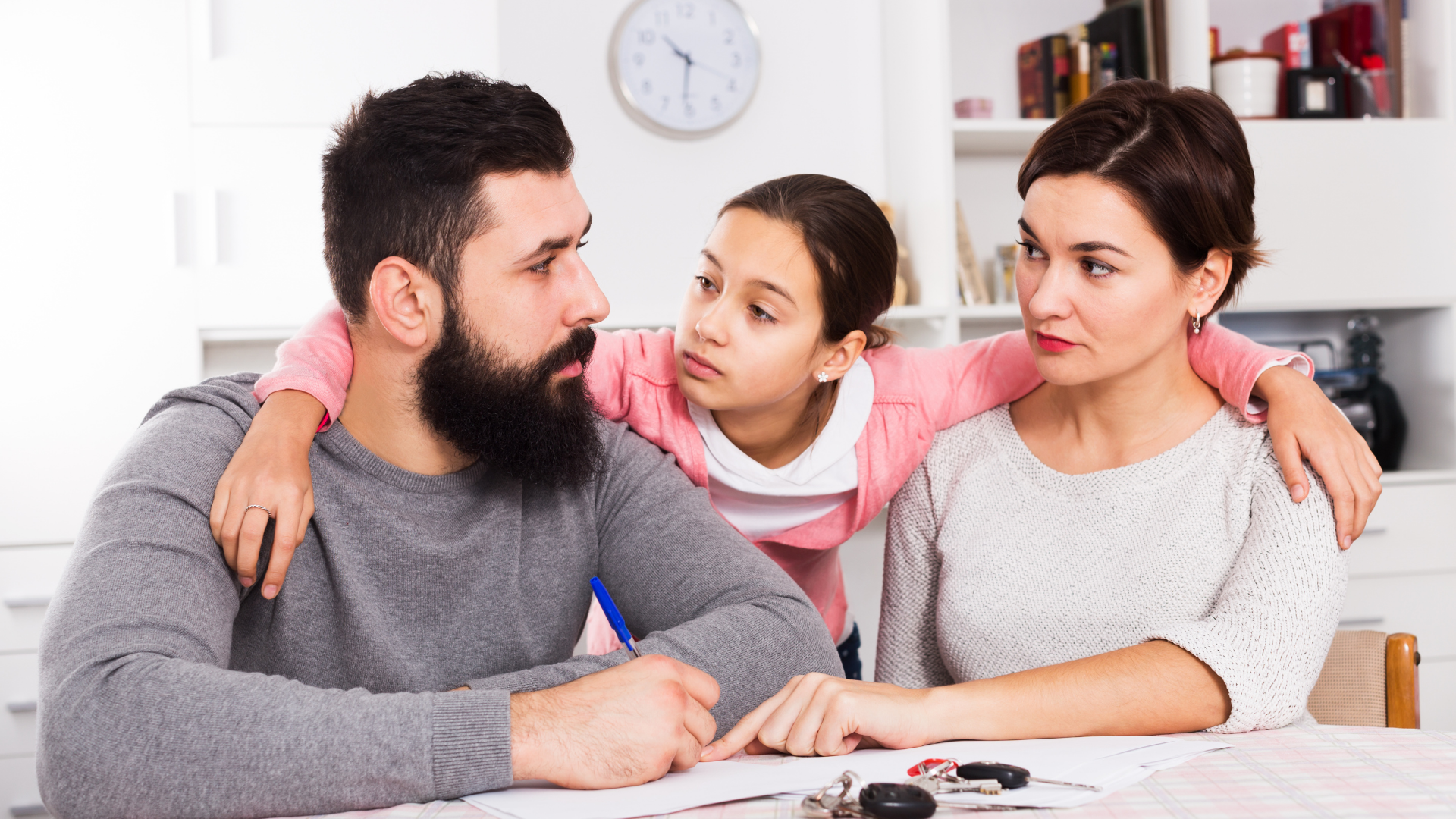This is a difficult issue for all parents going through a divorce. If you and your spouse have decided to go through with a divorce, you should commit to a healthy and supportive co-parenting relationship. To do this, you will need to establish communication guidelines, which begin with finding the right time to tell the child about the divorce. Every child is unique, and every co-parenting relationship is unique; however, there are some general guidelines you can follow to help facilitate the conversation and minimize trauma for the child when telling them about the divorce.
Telling Babies and Toddlers About Divorce
Explaining the divorce to the child depends on their age and development. Babies and infants are dependent on their parents and have no ability to understand complex events, anticipate future situations, or understand their feelings. They most likely will not understand what is going on. You may wait to approach this topic until they are old enough to speak and express their feelings.
Telling Preschool/Pre-Kindergarten Children About Divorce
Once the child begins preschool, they start to develop independence, have a limited ability to understand cause and effect, and are limited in their ability to talk about their feelings- although they think about them. In this stage, watch for signs of distress such as fear, anger, or emotional instability. This can take the form of clinginess, anxiety, whininess, or general irritability. For example, children that usually are sleeping through the night but now wake up more often might be struggling emotionally with the divorce. In this stage, you should prioritize consistent care and nutrition to give the child a sense of stability and reassurance. At this age, children need to be anchored by their normal routines, so try to form the same routine as your spouse to minimize difficulties with the transition between the households. Make sure both parents are committed to maintaining stability and giving extra emotional support. Stick to the basics with explanations- such young children need simple, concrete explanations. You should explain which parent will be moving out, where the child will live, who will look after them, and how often they will see the other parent. Provide short answers and then wait to see if they ask more questions.
Ages 6-11
Children ages 6 – 11 have a more developed ability to understand the circumstances related to divorce. Relationships outside of the family (friends, teachers, coaches) are also an important factor in planning the child’s time and providing emotional support. However, children in this age range tend to see things in black and white and may assign blame for the split. They tend to show their distress signs more clearly, and you should be able to tell when they miss the absent parent. Here, stable care and routines are still important. A good way to help facilitate the conversation is by assuring them their feelings are normal, such as by saying “Some children feel sad, afraid, or angry when their parents’ divorce. How do you feel?”. Listen to their needs and figure out a way both parents can best meet them.
Age 12 and older
Children age 12 and older have a greater capacity to understand divorce. They can take part in discussions and ask questions to increase their understanding. They desire more independence and are starting to question parental authority, likely placing a high value on relationships outside of the family. At this stage, watch for irritability, mood swings, and anger at one or both parents. Keep communication open. Teenagers sometimes act as if they don’t want to talk about it, but most often they still crave and need a connection with their parents. They may even be “testing” you to see how much you care about their feelings. Keep talking about it, even if they try to push you away. Focus on what they want to talk about and continue to communicate with your co-parent about how to best meet their needs. When you have the actual conversation about the divorce, keep these things in mind:
- Plan what you will say ahead of time together. Avoid having a conversation before school or bedtime- try to find a day that allows for some family time after.
- Talk to your children together. This will show them that you are committed to co-parenting. If you have safety concerns about being in the same area, speak to your attorney about a plan.
- Develop a non-blaming narrative. You must avoid the temptation to assign blame. Even if you feel like the child deserves to know the truth, or may already know the truth, that is less important than providing the support and emotional protection your child needs right now. Try to use the word “we” as much as you can.
- Tell your child why this is happening. The specific details are not appropriate; however, older children will press for information. Be prepared to give a general answer without assigning blame, such as “We both want different things”. Invite their questions after, but don’t press them. Give them time to adjust to the news. Tell your child what will change, what will stay the same, and where everyone will be living.
You may want to consider family therapy or individual counseling for a child that is struggling with processing the divorce. Also remember to limit conversations when exchanging the children, refrain from disparaging the other parent entirely, and exchange important details in writing. Lastly, respect the other parent’s time with the children and their parenting style. This is not an easy process for anyone involved, but if both parents are committed to maintaining a healthy and supportive co-parenting relationship, you will be able to minimize the child’s stress and anxiety throughout this process. Keep an eye out for any changes in your child’s behavior.





